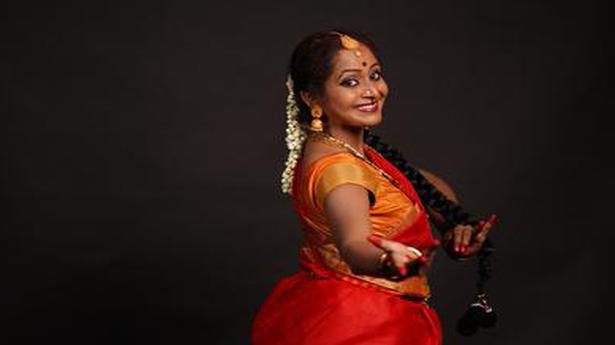MoreBack to News Headlines

The need for an inclusive dance discourse
The Hindu
Yashoda Thakore’s podcast ‘Her story of dance’ discusses the alienation of Kalavantulu hereditary performing artistes from the modern-day narratives
Yashoda Thakore first learnt of the famed courtesans Muddupalani and Rangajamma when she did her Master’s in dance. Her grandmother had recounted Muddupalani’s acclaimed work ‘Radhika Santvanam’ as a gem of Telugu literature, well-known for its ‘Radha bhava’. Yashoda was thrilled at the very idea that she could be a descendant of someone like Rangajamma who was renowned for her beauty and literary talent. Her professor painted these women as illusory beings! However, she found a silver lining in her hard-earned dancing career when she witnessed Maddula Lakshmi Narayana first perform — a woman who was probably in her 70s and was certainly not an “ethereal beauty” by today’s ‘standards’. “Draped in a silk sari replete with a waist belt, kaasulaperu and bulaaq, she blasted to life,” says Yashoda. “I wept quietly in the darkness but I felt relieved. Here was Maddula Lakshmi Narayana, a Kalavantulu woman who sang and danced! She was real! Her hair was haggard like mine. She was dark-skinned and possessed a bony structure. She was me!” Yashoda, in conversation with her student Sampreeti Malladi, captivates listeners through many such compelling narrations in her podcast ‘Her Story of Dance’. The expansive podcast discusses the alienation of Kalavantulu hereditary performing artistes of the coastal Andhra region from the dance discourse and educates the audience on caste, regionality and cultural hegemony in the context of the appropriation of art from these communities. A number of guest speakers bring in diverse perspectives to the discussion; the list of scholars and artistes who have pitched in is a long one — Saskia Kersenboom, Rumya Putcha, Annabattula Lakshmi Mangatayaru, Urmimala Sarkar, Yendamuri Subba Rao, Suneeta Rani, and Srividya Natarajan.More Related News

A. Kanyakumari’s online programme ‘Ekaika Raga Kritis of Tyagaraja’ turns into a live concert series
A. Kanyakumari launched the ‘Ekaika Raga Kritis of Tyagaraja’ series with a concert

 Run 3 Space | Play Space Running Game
Run 3 Space | Play Space Running Game Traffic Jam 3D | Online Racing Game
Traffic Jam 3D | Online Racing Game Duck Hunt | Play Old Classic Game
Duck Hunt | Play Old Classic Game










